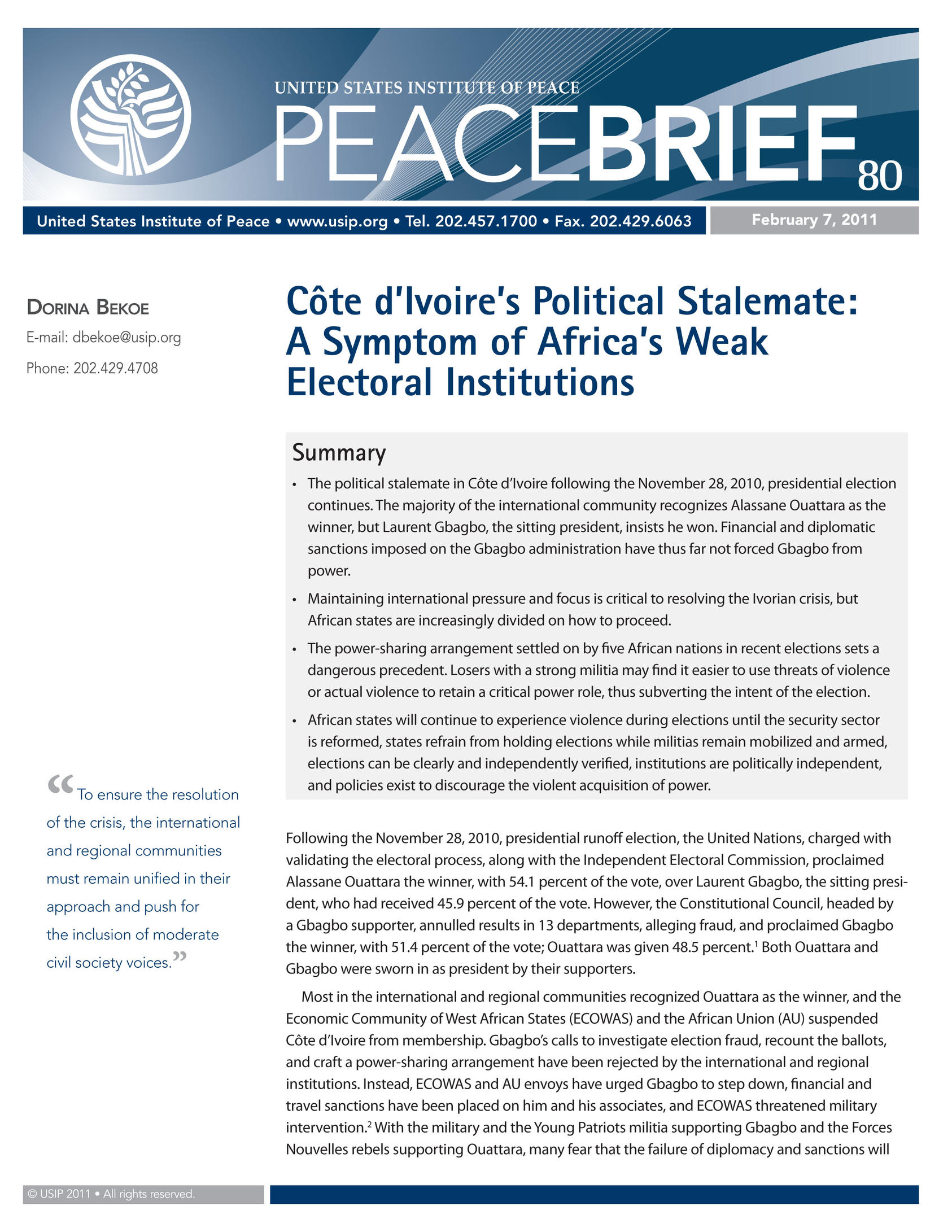This Peace Brief examines the political stalemate in Côte d’Ivoire following the November 28, 2010, presidential election and its implications for the future.

Summary
- The political stalemate in Côte d’Ivoire following the November 28, 2010, presidential election continues. The majority of the international community recognizes Alassane Ouattara as the winner, but Laurent Gbagbo, the sitting president, insists he won. Financial and diplomatic sanctions imposed on the Gbagbo administration have thus far not forced Gbagbo from power.
- Maintaining international pressure and focus is critical to resolving the Ivorian crisis, but African states are increasingly divided on how to proceed.
- The power-sharing arrangement settled on by five African nations in recent elections sets a dangerous precedent. Losers with a strong militia may find it easier to use threats of violence or actual violence to retain a critical power role, thus subverting the intent of the election.
- African states will continue to experience violence during elections until the security sector is reformed, states refrain from holding elections while militias remain mobilized and armed, elections can be clearly and independently verified, institutions are politically independent, and policies exist to discourage the violent acquisition of power.
About the Brief
Dorina A. Bekoe is a senior research associate in the Center for Conflict Analysis and Prevention, where she specializes in African conflicts, political development, institutional reform and peace agreement implementation. In this Peace Brief Bekoe examines the political stalemate in Côte d’Ivoire following the November 28, 2010, presidential election and its implications for the future.